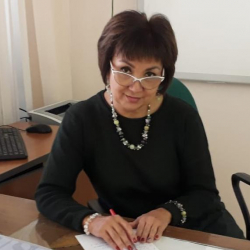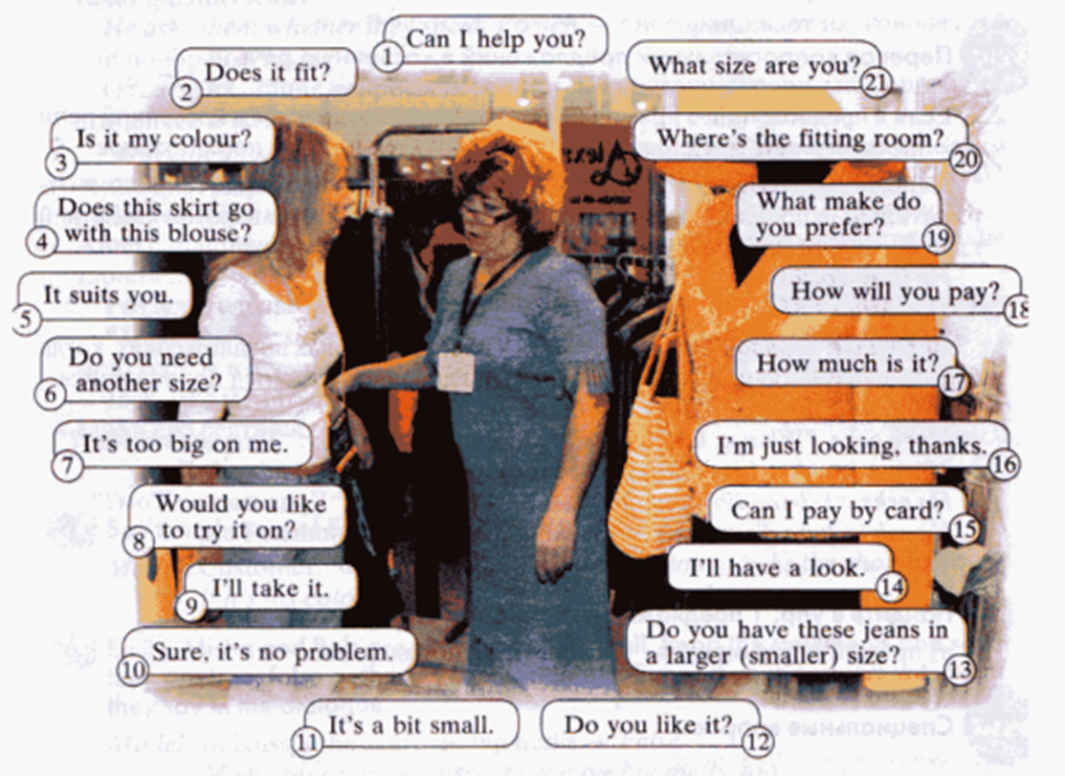| Today we’ll continue working with pronouns and the next types of pronouns are personal and possessive pronouns. ЛИЧНЫЕ МЕСТОИМЕНИЯ (PERSONAL PRONOUNS) 1. Личные местоимения всегда являются местоимениями-существительными. Они имеют формы двух падежей: именительного падежа (the Nominative Case) и объектного падежа (the Objective Case):
| Лицо | Именительный падеж | Объектный падеж | |
| Единственное число | | 1-е | I я | Me меня, мне | | 2-е | - - | - - | |
3-е | He он | Him его, ему | | She она | Her ее, ей | | It он, она, оно | It его, ее, ему, ей | |
| Множественное число | | 1-е | We мы | Us нас, нам | | 2-е | You вы | You вас, вам | | 3-е | They они | Them их, им | 1. Личные местоимения в именительном падеже выполняют функцию подлежащего именной части составного сказуемого: I saw that picture. Я видел эту картину. (подлежащее). It is I (he, we и т.д.) Это я (он, мы и т.д.) (именная часть сказуемого).
Примечание. В разговорной речи в функции именной части составного сказуемого встречается также личное местоимение в объектном падеже: It’s me (him, us). Особенно часто употребляется It’s me.
Местоимение I всегда пишется с прописной буквы. Когда местоимение I употребляется в предложении рядом с другими личными местоимениями (или существительными), то ставится после них: You and I (или: he and I) must be there at seven o’clock. Вы и я (или: он и я) должны быть там в семь часов. My brother and I will help you. Мой брат и я поможем вам.
Местоимение he он заменяет существительное, обозначающее существо мужского пола: Peter is an engineer. He works at a factory. Петр – инженер. Он работает на фабрике.
Местоимение she она заменяет существительное, обозначающее существо женского пола: Where is Helen? – She is in the garden. Где Елена? – Она в саду. Местоимение it заменяет существительное, обозначающее неодушевленный предмет, и соответствует русским местоимениям он, она или оно в зависимости от рода существительного в русском языке: The pencil is black. Карандаш черный. It is black. Он черный. The book is on the shelf. Книга на полке. It is on the shelf. Она на полке. The window is open. Окно открыто. It is open. Оно открыто.
Местоимение it употребляется также по отношению к животным, когда их пол для говорящего неизвестен или безразличен: The cat is under the table. Кошка под столом. It is under the table. Она по столом. Местоимение they они заменят как одушевленное существительное, так и неодушевленное: The students are in the corridor. Студент в коридоре. They are in the corridor. Они в коридоре. The documents are on the table. Документы на столе. They are on the table. Они на столе.
Местоимение you вы представляет собой форму множественного числа, но может относиться как ко многим лицам, так и к одному лицу в значении местоимения 2-го лица единственного числа: Children, where are you? Дети, где вы? Mary, where are you? Мария, где вы (ты)? Местоимение 2-го лица единственного числа thou(thee), соответствующее русскому местоимению ты (тебя, тебе), не употребляется ни в современной литературной прозе, ни в бытовой речи и встречается лишь в поэзии и в прозе, написанной в возвышенном стиле. 4. Личные местоимения в объектном падеже выполняют функцию прямого дополнения, чаще всего соответствуя в русском языке местоимению в винительном падеже (отвечающему на вопрос кого? что?), или функцию беспредложного косвенного дополнения, соответствуя в русском языке местоимению в дательном падеже без предлога (отвечающему на вопрос кому?): He saw me in the street Он видел меня на улице. (прямое дополнение). I met them at the station Я встретил их на вокзале. (прямое дополнение). He showed her the picture Он показал ей картину. (беспредложное косвенное дополнение) 5. Когда местоимение в объективном падеже с предлогом by употребляется в функции предложного косвенного дополнения, обозначая лицо, к которому обращено действие, оно также соответствует в русском языке местоимению в дательном падеже без предлога: He showed the picture to her and not to me. Он показал картину ей, а не мне. 6. Когда местоимение в объектном падеже с предлогом by употребляется в функции предложного косвенного дополнения, обозначая действующее лицо или действующую силу после глаголов в форме страдательного залога, оно соответствует в русском языке местоимению в творительном падеже без предлога (отвечающему на вопрос кем? чем?): The article was translated by her and not by them. Статья была переведена ею, а не ими. 7. Когда местоимение в объектном падеже с предлогом with употребляется в функции предложного косвенного дополнения, обозначая предмет, при помощи которого совершается действие, оно также соответствует в русском языке местоимению в творительном падеже без предлога: This pen is bad. I cannot white with it. Это перо плохое. Я не могу писать ими. 8. Местоимение в объектном падеже употребляется с любыми предлогами, являясь предложным косвенным дополнением и чаще всего соответствует в русском языке местоимениям в косвенных падежах с предлогами: This letter is for you. Это письмо для вас. I have read about it. Я читал об этом. I quite agree with him Я совершенно согласен с ним. I have received a latter form her. Я получил от нее письмо.
ПРИТЯЖАТЕЛЬНЫЕ МЕСТОИМЕНИЯ (POSSESSIVE PRONOUNS) 9. Личным местоимениям соответствуют притяжательные местоимения, выражающие принадлежность и отвечающие на вопрос whose? чей? Притяжательные местоимения имеют две формы: одну, служащую местоимением-прилагательным, и другую, служащую местоимением-существительным. 10. Притяжательные местоимения-прилагательные | Лицо | Личные местоимения | Притяжательные местоимения | |
1-е 2-е
3-е
1-е 2-е 3-е
| Единственное число ![]() I my мой, моя, мое, мои you your твой, твоя, твоё  he his его she her ее it its его, ее
Множественное число ![]()  we our наш, наша, наше, наши you your ваш, ваша, ваше, ваши they their их |
Притяжательное местоимение в этой форме всегда стоит перед существительным, к которому оно относится. Являясь определителем существительного, оно исключают употребление артикля перед этим существительным My pencil is on the table. Мой карандаш на столе. He gave me his address. Он дал мне свой адрес.
Если существительному предшествуют другие определения, то притяжательное местоимение, как всякий определитель, ставится перед ними: Where is my red pencil? Где мой красный карандаш? His elder brother lives in Leningrad. Его старший брат живет в Ленинграде. Притяжательное местоимение, как и артикль, ставится после all и both: All my pencils are in that box. Все мои карандаш в этой коробке. Both his brothers live there. Оба его брата живут там.
Примечание. В русском языке местоимения его и их употребляются как в качестве личных, так и притяжательных местоимений. Местоимениям его и их в значении личных местоимений (на вопрос кого? что?) соответствуют личные местоимения him и them, а местоимениям его и их в значении притяжательных местоимений (на вопрос чей?) соответствуют притяжательные местоимения his и their: Я видел его (личное местоимение). I saw him. Это его часы (притяжательное местоимение) This is his watch. Я видел их (личное местоимение). I saw them. Это их дом (притяжательное местоимение) This is their house. 11. Притяжательные местоимения-существительные | Лицо | Личные местоимения | Притяжательные местоимения | |
1-е 2-е
3-е
1-е 2-е 3-е
| Единственное число ![]() I my мой, моя, мое, мои you yours твой, твоя, твоё  he his его she hers ее it its его, ее
Множественное число ![]()  we ours наш, наша, наше, наши you yours ваш, ваша, ваше, ваши they theirs их | После этой формы притяжательных местоимений существительные никогда не ставятся, поскольку сами притяжательные местоимения употребляются вместо существительных. Эти местоимения выполняют в предложении функцию подлежащего, дополнения или именной части сказуемого: This is not my pencil, mine is blue Это не мой карандаш, мой – синий. (подлежащее). I have broken my pencil. Please give me yours Я сломал свой карандаш. Пожалуйста, дайте мне ваш. (прямое дополнение). This book is mine Эта книга моя. (именная часть сказуемого). 12. Русское притяжательное местоимение свой может относиться ко всем трем лицам единственного и множественного числа: я дал ему свою книгу, он (она) дал(а) мне свою книгу, мы дали им свои книги и т.д. В английском языке нет особой формы притяжательного местоимения, соответствующей русскому местоимению свой, и оно переводится одним из притяжательных местоимений my, mine, his, her, hers, your, yours и т.д. в зависимости от лица подлежащего:
Я сломал свою ручку. I have broken my pen. Она потеряла свой карандаш. She has lost her pencil. Они дали нам свои книги. They gave us their books. У меня нет словаря. Можете I haven’t got a dictionary. вы мне дать свой? Can you give me yours? Примечание. Следует иметь в виду, что в английском языке притяжательные местоимения-прилагательные употребляются значительно чаще, чем в русском: местоимения my, his, her и т.д. употребляются и в тех случаях, когда перед соответствующими русскими существительными местоимение свой (свои) отсутствует. Это происходит потому, что в некоторых случаях английские притяжательные местоимения в значительной степени утрачивают своё лексическое значение (чаще всего перед существительными, обозначающие части тела, предметы одежды, родственные отношения) и приближаются по значению к индивидуализирующему артиклю. Учащиеся в этих случаях часто ошибочно употребляют вместо притяжательного местоимения артикль the:
Он положил руку в карман. He put his hand into his pocket (а не: the hand и the pocket). Снимите пальто. Take off your coat (а не: the coat.) Я говорил отцу об этом. I told my father (а не: the father) about it. Он провёл отпуск в Крыму. He spent his leave In the Crimea. (а не: the leave) Is the explanation of pronouns clear to you? Then, do the tasks. Translate the following word combinations into English. OK, right you are. The next task is transform the words in bold to the pronouns.
Well done, students. At the end of our lesson I want you to do the final test in order to consolidate today’s grammar material.
|
Задание 1. Переведите словосочетания на английский язык Моя книга, ее ручка, наша комната, его собака, ваш портфель, их комната, твоя машина. Задание 2. Переведите предложения на английский язык Твоя книга – не моя. 2. Эта книга – моя. 3. Это моя книга, а то – его. 4. Это ее карандаши, а те – мои. 5. Возьми те карандаши. Задание 3. Замените выделенные слова личными местоимениями 1. Peter helped the pupils to translate the text. 2. Mother asked Mary to wash the plates. 3. My friend writes a letter to his sister. 4. Jane took 3 books from the library (there). 5. His cousins live in Moscow.
TEST Choose the correct form of pronouns. 1.What colour is the shirt? It is so far that I can’t see … colour. a) it’s b) its c) it 2. They rarely drive to ... office. They live near … . a) their b) them c) theirs d) it’s e) its f) it 3. Look at … new watch. Do you like …? a) me b) mine c) my d) it e) them f) its 4. These books are … . Give … to … . a) her b) hers c) them d) their e) theirs f) hers g) her 5.Do you like … new car?-Oh, … has never let me down yet. a) you b) your c) yours d) it’s e) it f) its 6. … work is much more difficult than … or … . a) Theirs b)Their c) Them d) you e) your f) yours g) me h) mine i) my 7. Why are … sitting here? It is not … desk, it is … . a) you b) your c) yours d) me e) mine f) my 8. This tape recorder of … is always out if order. - But so is …! a) her b) hers c) she d) you e) your f) yours 9. She has not read a line of… , how can she criticize … books? a) you b) your c) yours d) you e) your f) yours 10.The clock the stopped. Something may be wrong with … spring. a) it’s b) it c) its 11. … was the last turn. a) We b) Our c) Ours 12. … knowledge of French is not much more superior to … . a) Their b) Theirs c) Them d) we e) our f) ours | 




















